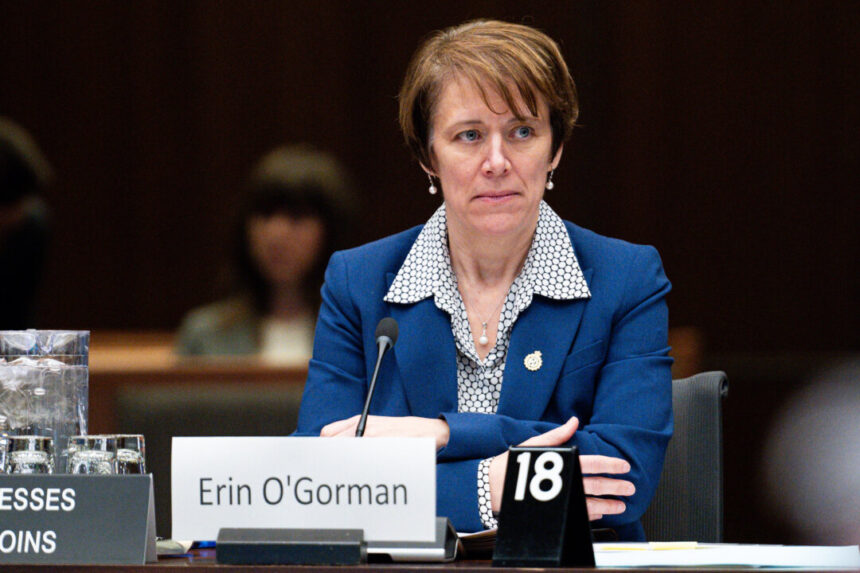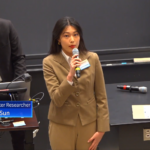The head of the border agency mentioned that she was made aware through media reports that her officers are feeling frustrated about their inability to respond when they witness individuals crossing the border illegally near a port of entry due to jurisdictional issues.
“This issue has never been brought to my attention before,” Erin O’Gorman, the president of the Canada Border Services Agency (CBSA), stated during her appearance before the House of Commons public safety committee on Dec. 3.
O’Gorman informed Conservative MP Raquel Dancho that she had acquired this information from news sources.
“It appears that our border officers are frustrated because they see individuals crossing just outside their jurisdiction and are unable to apprehend them,” Dancho mentioned after reading Weber’s statement to O’Gorman.
O’Gorman expressed her willingness to address the legislative constraints on CBSA’s mandate and acknowledged that the ultimate solution lies with Parliament.
CBSA and the RCMP are currently responsible for border security. CBSA oversees ports of entry while the RCMP covers the areas in between ports of entry.
Public Safety Minister Dominic LeBlanc informed the committee that he has taken note of the concerns raised by the border union president and has discussed the issue with RCMP Commissioner Michael Duheme. “While no decisions have been made yet, we are open to considering options,” LeBlanc stated.
Border security has become a top priority for politicians following U.S. President-elect Donald Trump’s tariff threat. Trump announced on Nov. 25 that he would impose a 25 percent tariff on goods from Canada and Mexico if they do not address illegal immigration and drug smuggling.
Furthermore, LeBlanc informed the committee that CBSA intercepted over 13 tonnes of illegal drugs at land crossings over the past two years.
Visit
LeBlanc testified at the committee following a visit to Trump’s residence in Florida last week with Prime Minister Justin Trudeau, where border security and trade were discussed.
Trudeau also raised concerns about illegal firearms, cocaine, and methamphetamine being smuggled into Canada from the United States. “We wanted to convey to the Americans that we share their concerns and have our own as well,” LeBlanc mentioned.
Increasing security presence near the border is challenging due to human resource constraints and conflicting priorities.
LeBlanc did not provide a specific human resources plan for border security with regards to CBSA and RCMP personnel to the committee.
“There will be additional resources, both human and equipment, as we have consistently stated,” LeBlanc assured, adding that a formal announcement will be made before Trump’s inauguration on Jan. 20. “We are finalizing the details based on advice from the RCMP and CBSA,” LeBlanc stated.
While the RCMP has a contingency plan for handling an influx of migrants seeking to leave the U.S. to avoid mass deportation under Trump, there is no clear strategy in place to prevent individuals from crossing into the U.S.
Even with enhanced resources near the border, the RCMP’s legal authority to prevent crossings into the U.S. is limited.
Duheme emphasized that an offense only occurs when an individual actually crosses the border.
“Having the right technology and establishing effective partnerships south of the border is more crucial now than ever,” he remarked.
Please rewrite the following sentence for me.
Source link








